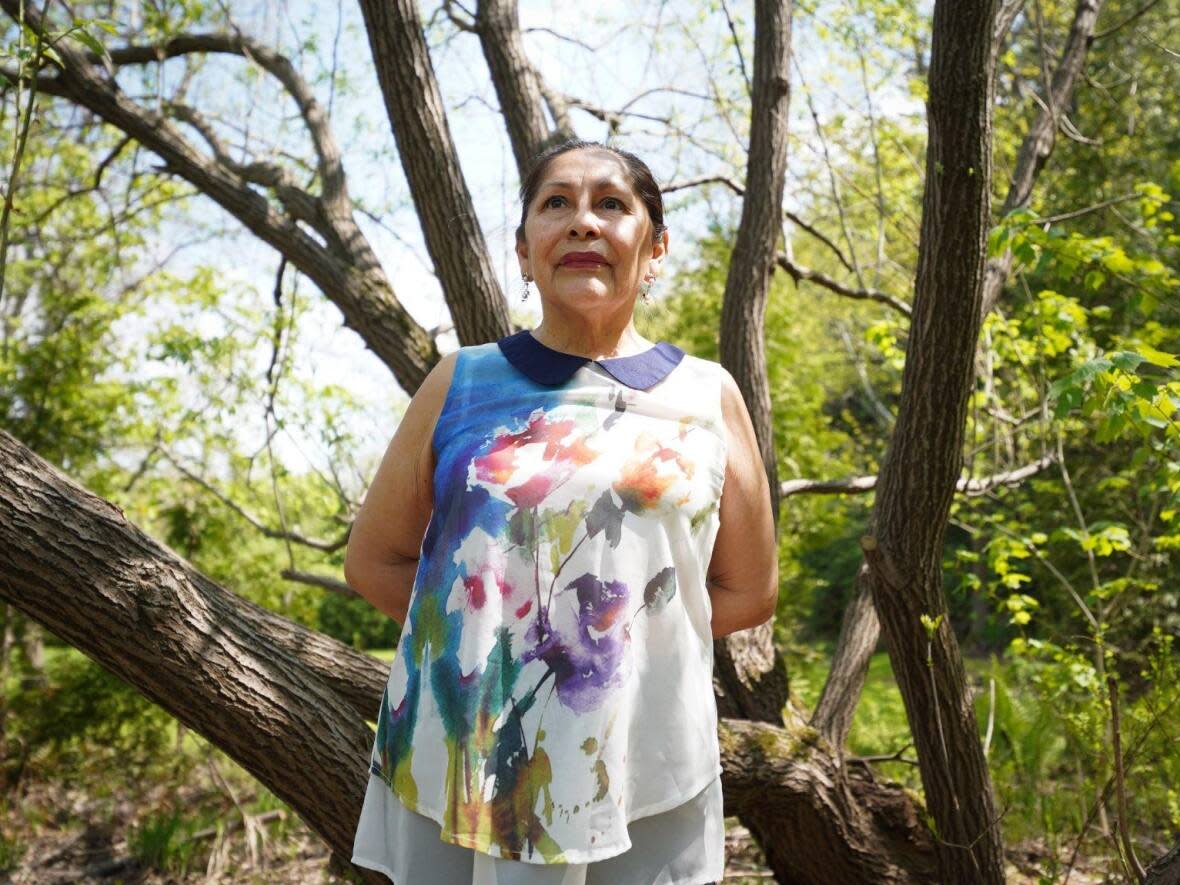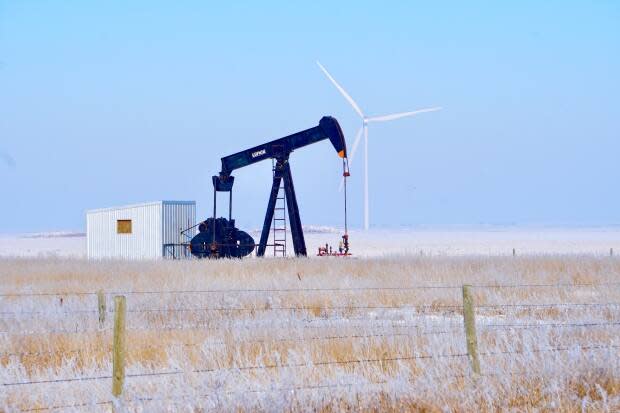This senator wants Canadian banks to fight climate change

Rosa Galvez has taken on a Herculean task: force Canadian financial institutions to prioritize the fight against climate change.
More than two years ago, the independent senator from Quebec proposed legislation that would force banks and pension funds to steer away from emissions-intensive investments, such as the oil and gas sector.
It would also increase regulatory oversight to determine whether the climate plans laid out by institutions are credible, and limit the presence of fossil fuel executives on the their boards.
The bill, known as the Climate-Aligned Finance Act, has moved slowly. The Senate banking committee only began hearing from witnesses late last year, and had another round of testimony earlier this month.
In a recent interview, Galvez was clear she's under no illusion the bill is likely to become law any time soon. But at the very least, she wants it to generate a debate about the role of the finance sector in climate change.
"I'm not asking for the moon," said Galvez. "I don't want the bill to be passed just like that, or to be rejected just like that."

The missing link
Before being appointed to the Senate in 2016, Galvez, who is originally from Peru, was an engineer and professor at Université Laval à Québec for over 25 years.
She researched the impact of the oil spill in the Lac Megantic rail disaster and worked as a consultant on how to protect the Great Lakes and the St. Lawrence River.
As a senator, Galvez said her focus turned to banks and pension funds, which she views as a driving force of the transition toward renewable energy.
"You come to the conclusion that the part that is missing is the finance sector, which actually should be the first sector in order to start obtaining results," said Galvez.
The legislation would give the Office of the Superintendent of Financial Institutions, which regulates the financial sector, greater power to oversee the climate plans of financial institutions.
It would also require fossil fuel projects and other high-emissions sectors to be considered high risk, effectively requiring more capital to obtain a loan — and potentially a higher interest rate once one is secured.
There is logic in a high-risk designation because companies whose value relies on pulling oil, gas or coal from the ground may find their assets "stranded" in a low-carbon economy, said Olaf Weber, a sustainable finance professor at York University's Schulich School of Business.
"As a bank you have a five year loan to fossil fuel company, are the risks higher than in other industries? Probably not," he said.
"If you have a longer term connection with them, are the risks higher? Probably yes, because sooner or later we will see that income goes down or costs go up," he added, pointing to an eventual decline in demand and higher carbon price as factors.
The proposal enjoys wide support from environmental groups and has received backing from some Liberal, NDP and Bloc Quebecois MPs. But it has been met with pushback from financial institutions.
Canadian banks remain among the largest financiers of oil, gas and coal globally. A report released this month calculated that Canada's top banks pumped a combined $103.85 billion US into fossil fuel projects globally in 2023.
Fossil fuel financing by year
Banking industry voices concerns
Darren Hannah, senior-vice president of the Canadian Bankers Association (CBA), which represents the country's largest banks, was highly critical in his testimony before the Senate banking committee last November.
The bill, if put into law, would amount to a "de facto ban" on lending to fossil fuel companies because of rules that would require lending to be viewed as a much higher investment risk, Hannah said.
Such a change would be "fundamentally unfair to the thousands of Canadians who work in the energy sector and the energy companies that are building transition paths to a low-carbon future," he said.
He argued, as well, that this would "increase costs for most Canadians that rely on their vehicle for day-to-day needs or many who rely on hydrocarbon fuels to heat their homes."
Yrjo Koskinen, a sustainable finance professor at University of Calgary, questions whether the law would actually lead to a "de facto ban." Rather, he said it would would likely lead banks to charge higher interest rates to oil and gas companies.
Maggie Cheung, a CBA spokesperson, added in a statement that "Canada's banks understand the important role that the financial sector can play in facilitating an orderly transition to a low-carbon future."
"This includes working with clients across industries to help them decarbonize and pursue energy transition opportunities, and financing new and existing green projects that will help Canada meet its net-zero ambitions," Cheung said.
WATCH | 3 ways the world is making progress on green energy:
Financial sector 'off track'
Exactly how the financial sector will help drive this transition remains unclear. Julie Segal, who specializes in climate finance with the advocacy group Environmental Defence, said most Canadian financial institutions have not voluntarily shifted their portfolios away from polluting investments.
In 2021, Canada's five largest banks committed to reduce the climate-related emissions from their investment and loan portfolios to net-zero by 2050, but there has been backsliding in the years since, she said.
Between 2020 and 2022, those same five banks increased their fossil fuel financing exposure from an average of 16 per cent in 2020 to 18 per cent in 2022, facilitating a total of $275 billion US in financing to fossil fuel value chain companies over those three years, according to a recent report from InfluenceMap, a climate change think tank.
Segal pointed to the European Union, which announced a sustainable finance policy in its 2020 Green Deal aimed at reducing emissions, and the United Kingdom, which also has a green finance plan, as examples of jurisdictions further along.
"Right now, our financial sector at large remains off track," she said. "Almost all of our financial institutions have climate commitments, but none of them are on track to align with investing in a way that keeps a safe planet and builds climate resilience."

Similarly, Mark Carney, the former Bank of Canada governor and sometimes touted as a possible Liberal leader, testified before the committee earlier this month that "Canada is lagging its international peers" when it comes to sustainable finance.
"Canadian climate disclosure efforts have been patchwork, delivered late and falling short of international standards," said Carney, the UN Special Envoy on Climate Action and Finance.
For now, the Climate-Aligned Finance Act is still at the committee stage and faces several more hurdles before it would be put to a vote in the Senate, and then make its way to the House of Commons.
That all could take time, and with an election expected in 2025, it could become a campaign issue. For now, Galvez said "the first goal was just to educate everybody on these connections."


